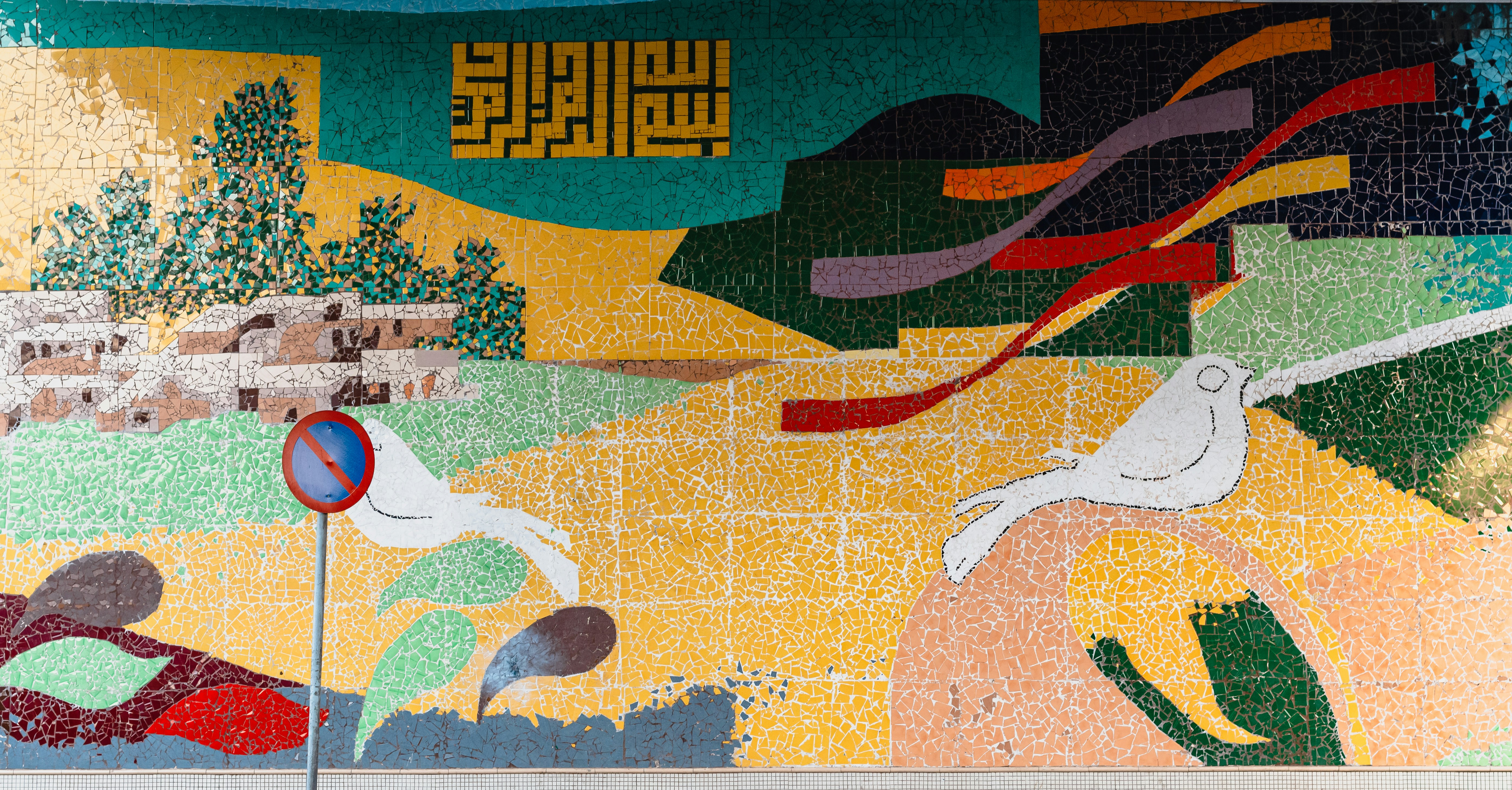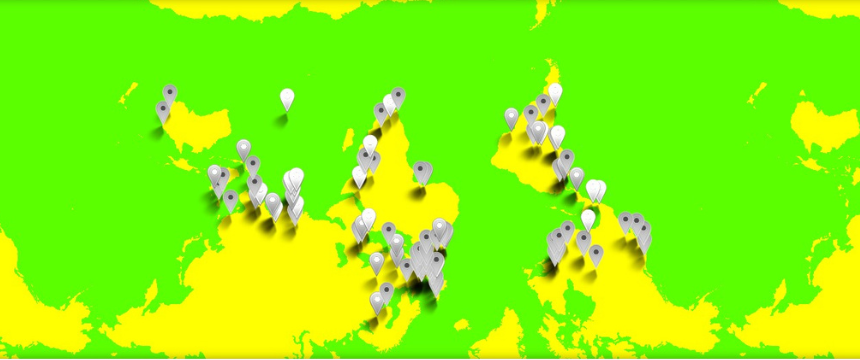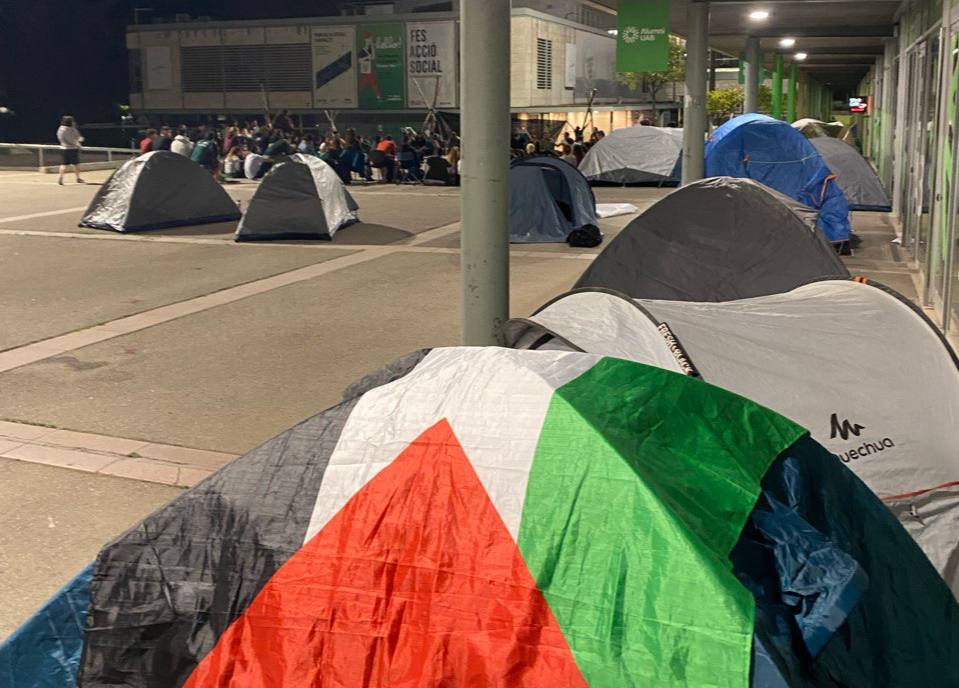The climate crisis is in the headlines as COP30 unfolds. A contested space, of contradiction and struggle. Hit by a long and violent thunderstorm on the first day. Later charged by a large group of indigenous leaders who breached into the COP30 venue to symbolically reclaim the space. Meanwhile, diplomatic delegates propose new ways to financialize nature.
Problematic as the COP30 may be, we focus on the frontline efforts of our allies as they carry a specific, tangible proposal with the potential to address systemic change: debt cancellation. Considered a degrowth-leaning policy, this proposal refers to the partial or total deletion of debt contracted by a government. Some argue it can only be achieved through mass default. Others propose to explore diverse perspectives and strategies for action.
We spoke to our friends from the Debt for Climate (D4C) movement present at COP30: Dianx - global coordinator of Debt for Climate Abya Yala and co-organizer of the Mesoamerican Caravan for Climate and Life - and Jana, part of the Global North Coordinator team at D4C.
Degrowth.info: Tell us about the Debt for Climate movement. What are its aims and demands?
Dianx: Debt for Climate is a global grassroots movement. We call it the movement of movements because what we do is try to build bridges between organizations and movements that sometimes don't talk to each other. Like the feminist movement, the indigenous land defenders, labor unions, the youth, and also faith movements, as we know that we are facing the same problems, no? We are fighting against the International Monetary Fund (IMF), World Bank, Black Rock… All these financial institutions are imposing more colonization in our territories through debt; through this financial mechanism that we understand as a continuation of colonialism. Basically, most of the Global South countries have a big burden of debt. We know that there are mechanisms to confront it, to audit it, and to cancel it, but sometimes there is not a political will to go forward. So that's why we try to empower grassroots movements to say that debt is illegitimate, that it shouldn't be paid. But we need popular power. We need the people out in the streets pushing for this and indigenous communities confronting this because we are also demanding the recognition of the colonial debt that is owed to these territories.
Degrowth.info: In Debt for Climate's perspective, reparations are owed to the majority world, to account for resource extraction, ecosystem destruction, pollution, slavery, and a long list of etcetera. Can you give us examples to help us understand why debt should actually function 'the other way around'? How can we implement this?
Jana: One of the clearest examples is looking at the climate debt that rich countries have with the Global South, as shown by the ActionAid study published earlier this year. If you sum up all the money that would be owed, it's 70 times greater than the Global South debt. One of the main tasks we have is translating this abstract research into more accessible language and exposing false solutions such as the debt swaps and the Tropical Forest Forever Facility (TFFF) that the Brazilian government is pushing for here at COP, which is just another way to financialize forests. Those are things that we are trying to make more explicit.
Dianx: We also talk about mechanisms like the citizen internal debt audit in which if you prove that debt is illegitimate or odious then that debt should not only be canceled but be given back. By international law, you can request this, and we need to audit these debts. It’s not about asking please cancel our debts. As citizens we are entitled to revise them but for this to happen we need to empower communities.
Degrowth.info: Can you expand on this? What's the process when you deem that a debt is illegitimate?Who decides?
Dianx: It has happened before, but with the support of the presidency. For example, in Ecuador in 2008 the president ran an audit where they realized there were many illegitimacies. So then by a decree the government declared we are not paying that. We are trying to do a case for strategic litigation in order to look for international institutions, like the Human Rights Convention, the ICJ, to bring forward cases in which debt must be cancelled to start a precedent.
Degrowth.info: We have covered the main aims of the Debt for Climate movement and now I would like to move into more specific connections with the degrowth movement. So, where do you see the main synergies between D4C and degrowth?
Jana: Having a decolonial focus. Or at least the way I understand degrowth is that it has to be inherently decolonial. When we're talking about a just self-determined transition and climate adaptation, then debt cancellation is a crucial step for that, to stop the flow of financial resources from the South to the North and actually free up that money for countries in the Global South. But this is just the first step, right? We also look at the wider economic and financial system. We are making sure we understand the structural settings that don't allow Global South countries to prosper and to ensure good lives for all their citizens. If we were to implement degrowth in the North, then that would free up resources in the South. Which is the concept of delinking as a broader concept for sovereignty; debt cancellation fits in there very nicely. How can we ensure that Global South countries that are now still strangled by debt, actually get the sovereignty to decide about their own resources and put agency back into the hands of people.
Dianx: I think it's important to problematize degrowing: who needs to degrow? There are mega projects in the Latin American region that depend on more extractivism. For example, Pemex, the Mexican state-owned petroleum corporation managed and operated by the government, is the most indebted oil company in the world. And now instead of trying to cancel its debt or stop paying it or start investing in transition energies, the government is enforcing to do fracking, which was prohibited in Mexico, but now they are pushing it forward in order to pay the debt. This is a case where I see the connection with degrowth: we cannot continue growing and growing and developing more infrastructure only to pay off debts.
Degrowth.info: You've touched upon the systemic analysis. So first, one connection with degrowth is the need for mending the exploitative colonizer/colonized relationship. Then there is self-determination and economic independence. Are there other systemic elements that D4C incorporates in their vision?
Jana: We are focusing on alliance building with other movements and other groups. This year one focus has been with religious groups and Christian groups because of the Jubilee, an interfaith concept. This religious angle might not be very prominent in other climate justice groups or in the degrowth movement. For us it's important to combine our narrative with groups that are also calling for debt cancellation, which is the case of the current Pope Leo XVI and previously Pope Francis.
Dianx: Also, it's important to create a relationship South to South. It's really difficult from Abya Yala to hear the voices of people from Africa and from Southeast Asia. Although it's the same companies, same banks, same developers… Creating solidarity South to South is crucial.
Degrowth.info: Ideally, the concept of debt cancellation would release resources that could be invested in social and ecological well-being policies in the majority world. How can we make sure that those resources actually benefit the working class? Thinking specifically about Global South elites, which in a way replicate wider power hierarchies
Jana: The answer is in what Dianx already mentioned, the citizen-led debt audits. That's a good start in terms of having popular mass education . This way the population would be more informed, driving this process and invested which would allow for greater accountability.
Dianx: Also, we know how governments are… We have seen the cases in which corruption started again after debt cancellation, and countries got indebted again. This year we are pushing for the Jubilee. Jubilee is a millenary tradition according to which you must cancel debts, liberate the territory, and free enslaved people. It started in Mesopotamia, then was taken by Jewish communities, and then by Catholic communities, with the period varying from 25 to 50 years. If you didn't do the Jubilee, then the ruling class would gain so much power that it would become more powerful than any state. So, Jubilee is a cyclic time for rebalancing and remembering that no one should have so much land, so much money. And that is something that is lost now in the capitalist system. At some point we need to cancel debt. It is the tendency we must follow in order to keep balance between people and our relationship with land. The debt is owed to the land that is receiving so much pain from this extractivist system. So, I think it would be, as the Zapatistas say, revolution never starts and never ends. It's a continuous process, a never-ending struggle.
Degrowth.info: How can we attempt to measure what the global South is entitled to in terms of debt?
Dianx: As a movement when we start learning about debt, we also start learning about money. And we know that most of the money that circulates right now is money that doesn't really exist. It's speculation. It's imaginary numbers, literally, that are occurring in a computer. And now we are seeing it with the TFFF fund that is being demanded in the COP30. It's a new mechanism that the presidency of COP is pursuing and it's going to be managed by the World Bank and it’s trying to redirect financing to the people that are taking care of the forest. But that mechanism is coming with more debt and also, it’s not really paying what is owed. There's no way, there's no money, there is nothing that can pay for all the lives that we have lost with climate change… Through the Mesoamerican Caravan for Climate and Life we have seen so many cases of land defenders persecuted, repressed, criminalized, incarcerated, and even killed. And how can we try to quantify that? It’s unpayable. Denise Ferreira da Silva, a philosopher and writer from Brazil, says that the debt the colonialists have with us is unpayable. It's unpayable and that's why we need to do the impossible to claim it back. So, if we follow the logic of only claiming more money, that will mean that we believe in the system, that we believe everything can be translated into money. They might even accept to give us some charity money but then they can turn around and print more and nothing changes. In D4C we are opening Pandora’s box. Money's not real and we should go further than that.
Degrowth.info: To close, please tell us what the Debt for Climate movement is focusing on at the COP30, maybe also touching upon how civil society organisations are treated and sidelined in and around UN spaces, and what is done as a response.
Dianx: We know that this debt is owed to the people and the land. With the Mesoamerican Caravan for Climate and Life we bring all the demands that we gathered during the visit to the communities in Guatemala, Honduras, El Salvador, Costa Rica, Panama, Colombia, and now here. It's been a long, long journey in which we talked directly to the communities and collected their demands to bring them here. We know that this COP space is only about negotiating and speculating more with the land, with the peoples and bodies. So, the demands gathered from communities are something that we are carrying as a political flag into this space. We are also running a campaign against debt swaps and fostering the internal debt audits.
Debt for Climate will also be participating in the People’s Summit which is a parallel event where activists and civil society actors call to action for a fair and solidarity-based transition. They will also be at the Ecosocialist Summit prior to and during the first days of COP. Check out their website and social media for up-to-date information on their actions.

Formed in the wake of the International Degrowth Conference 2024 in Pontevedra - following an intervention by Luisa Emilia Reyes Zúñiga - the Delinking & Degrowth Collective convenes organisers, scholars, practitioners, and learners from around the world, within and beyond the degrowth community. Meeting monthly and coordinating via a shared WhatsApp hub, the collective uses leverage from w...

In support of a fellow movement aligned with degrowth, we are republishing this declaration of the Global Tapestry of Alternatives which was originally released on June 13th.

Writing from the encampment for Palestine at the Autonomous University of Barcelona, Charles Stevenson, Feroz Khan, and Inea Lehner argue that Palestinian liberation must be seen as central to a degrowth transformation